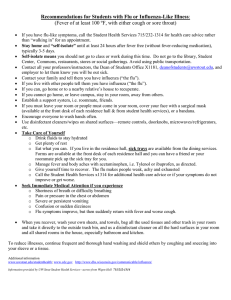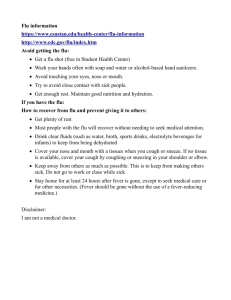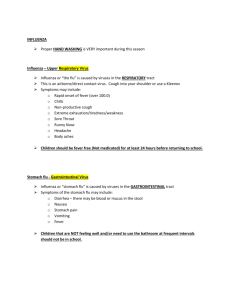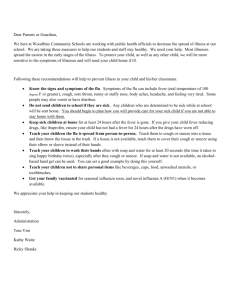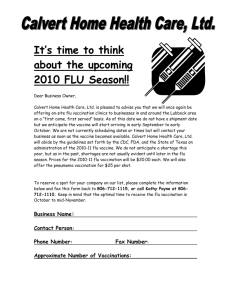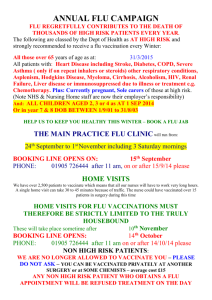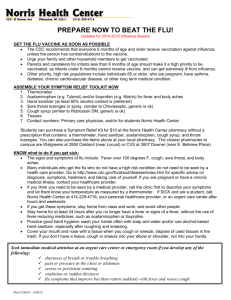INFLUENZA (Flu)
advertisement
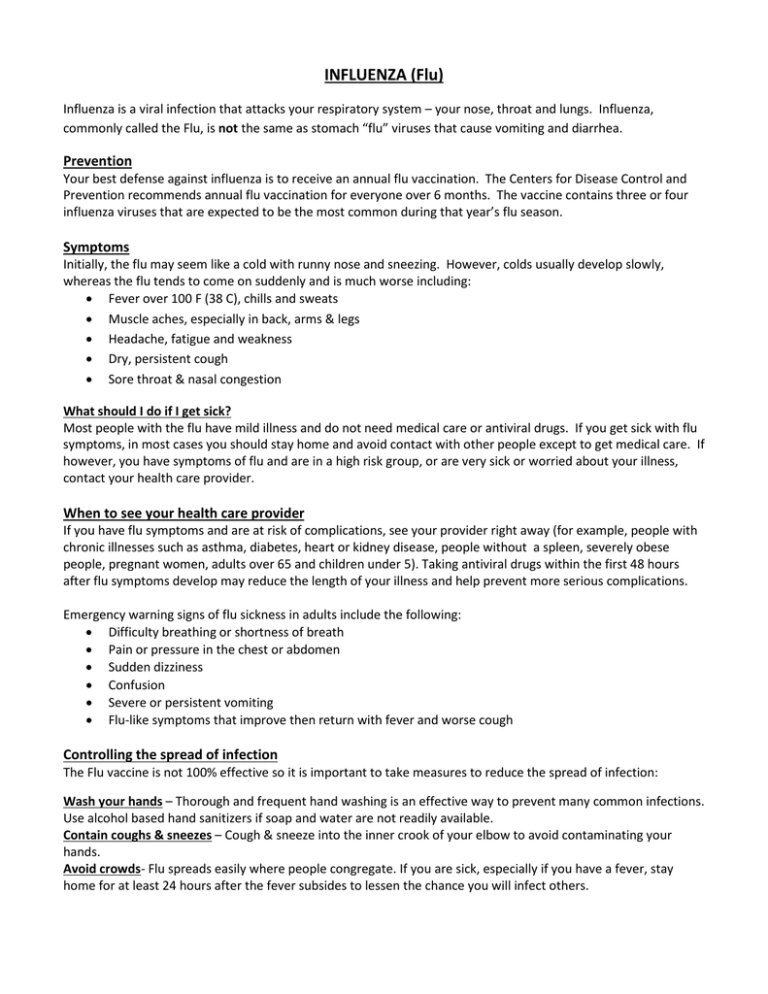
INFLUENZA (Flu) Influenza is a viral infection that attacks your respiratory system – your nose, throat and lungs. Influenza, commonly called the Flu, is not the same as stomach “flu” viruses that cause vomiting and diarrhea. Prevention Your best defense against influenza is to receive an annual flu vaccination. The Centers for Disease Control and Prevention recommends annual flu vaccination for everyone over 6 months. The vaccine contains three or four influenza viruses that are expected to be the most common during that year’s flu season. Symptoms Initially, the flu may seem like a cold with runny nose and sneezing. However, colds usually develop slowly, whereas the flu tends to come on suddenly and is much worse including: • Fever over 100 F (38 C), chills and sweats • Muscle aches, especially in back, arms & legs • Headache, fatigue and weakness • Dry, persistent cough • Sore throat & nasal congestion What should I do if I get sick? Most people with the flu have mild illness and do not need medical care or antiviral drugs. If you get sick with flu symptoms, in most cases you should stay home and avoid contact with other people except to get medical care. If however, you have symptoms of flu and are in a high risk group, or are very sick or worried about your illness, contact your health care provider. When to see your health care provider If you have flu symptoms and are at risk of complications, see your provider right away (for example, people with chronic illnesses such as asthma, diabetes, heart or kidney disease, people without a spleen, severely obese people, pregnant women, adults over 65 and children under 5). Taking antiviral drugs within the first 48 hours after flu symptoms develop may reduce the length of your illness and help prevent more serious complications. Emergency warning signs of flu sickness in adults include the following: • Difficulty breathing or shortness of breath • Pain or pressure in the chest or abdomen • Sudden dizziness • Confusion • Severe or persistent vomiting • Flu-like symptoms that improve then return with fever and worse cough Controlling the spread of infection The Flu vaccine is not 100% effective so it is important to take measures to reduce the spread of infection: Wash your hands – Thorough and frequent hand washing is an effective way to prevent many common infections. Use alcohol based hand sanitizers if soap and water are not readily available. Contain coughs & sneezes – Cough & sneeze into the inner crook of your elbow to avoid contaminating your hands. Avoid crowds- Flu spreads easily where people congregate. If you are sick, especially if you have a fever, stay home for at least 24 hours after the fever subsides to lessen the chance you will infect others.
